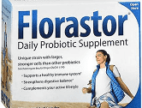Neurology
DIACOMIT® (stiripentol)

What is DIACOMIT?
DIACOMIT is an orphan medicinal product, that is a chemically unique antiseizure medication developed through the Biocodex research program. It is approved in the United States and is indicated for the treatment of seizures associated with Dravet syndrome (DS) in patients taking clobazam who are 6 months of age and older and weighing 7 kg or more.
There are no clinical data to support the use of DIACOMIT as a monotherapy in Dravet syndrome.1
Please see full prescribing information here.
IMPORTANT SAFETY INFORMATION
INDICATION
DIACOMIT (stiripentol) capsules for oral use or powder for oral suspension are indicated for the treatment of seizures associated with Dravet syndrome (DS) in patients taking clobazam who are 6 months of age and older and weighing 7 kg or more.
There are no clinical data to support the use of DIACOMIT as monotherapy in Dravet syndrome.
IMPORTANT SAFETY INFORMATION
CONTRAINDICATIONS
No contraindications are listed.
WARNINGS & PRECAUTIONS
Somnolence
DIACOMIT can cause somnolence. Monitor patients for somnolence, particularly when DIACOMIT is used concomitantly with other CNS depressants or clobazam, which is also known to cause somnolence.
Decreased Appetite and Decreased Weight
DIACOMIT can cause decreases in appetite and weight. The growth and weight of pediatric patients treated with DIACOMIT should be carefully monitored.
Neutropenia and Thrombocytopenia
DIACOMIT can cause significant declines in neutrophil and platelet counts. Hematologic testing should be obtained prior to starting treatment with DIACOMIT and then every 6 months.
Withdrawal Symptoms
As with most antiepileptic drugs (AEDs), DIACOMIT should be gradually withdrawn to minimize the risk of increased seizure frequency and status epilepticus.
Risks in Patients with Phenylketonuria (PKU)
DIACOMIT for oral suspension contains phenylalanine, which can be harmful to patients with PKU. Before prescribing DIACOMIT for oral suspension to a patient with PKU, consider the total daily intake of phenylalanine from all sources, including DIACOMIT for oral suspension. DIACOMIT capsules do not contain phenylalanine.
Suicidal Behavior and Ideation
AEDs, including DIACOMIT, increase the risk of suicidal thoughts or behavior. Patients treated with any AED for any indication should be monitored for the emergence or worsening of depression, suicidal thoughts or behavior, and/or any unusual changes in mood or behavior.
ADVERSE REACTIONS
The most common adverse reactions that occurred in at least 10% of DIACOMIT-treated patients and more frequently than on placebo were somnolence, decreased appetite, agitation, ataxia, decreased weight, hypotonia, nausea, tremor, dysarthria, and insomnia.
PREGNANCY
There are no adequate data on the developmental risks associated with the use of DIACOMIT in pregnant women. Based on animal data, DIACOMIT may cause fetal harm.
There is a pregnancy exposure registry that monitors pregnancy outcomes in women exposed to AEDs, such as DIACOMIT, during pregnancy. Physicians are advised to recommend that pregnant patients taking DIACOMIT enroll in the North American Antiepileptic Drug (NAAED) Pregnancy Registry (information at http://www.aedpregnancyregistry.org). This can be done by calling the toll free number 1-888-233-2334, and must be done by patients themselves or their caregiver.
To report suspected adverse reactions, contact BIOCODEX at 1-866-330-3050 or FDA at 1-800-FDA-1088 or www.fda.gov/medwatch
Please see full prescribing information here.
1 References: DIACOMIT [prescribing information]. Beauvais, France: BIOCODEX; 2022.












